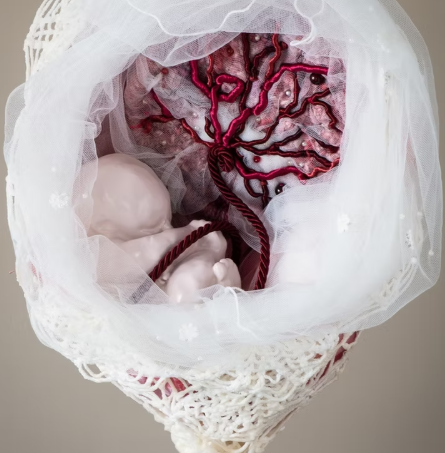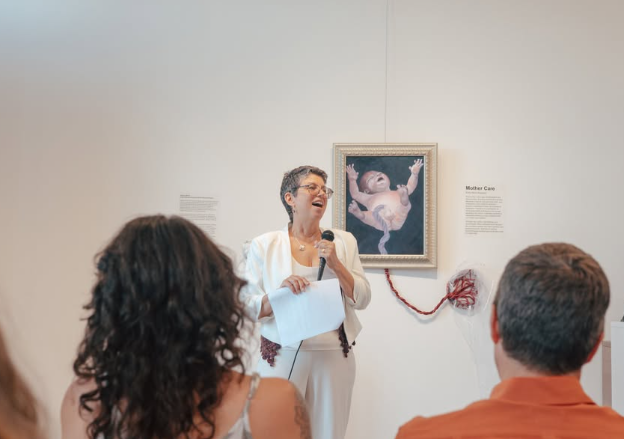2025 marks a quarter-century since the Midwifery Act was passed in Manitoba, allowing mothers and families to access informed prenatal, birth and post-partum care. Now, a new exhibit called Mother Care at the 210 Gallery in the Exchange District is celebrating that anniversary with a multi-disciplinary reflection on the work that has been done to acknowledge the work of midwives across the province that stretched back two decades before passing of the act.
“The feminist movement in Manitoba was quite strong and was working towards more control of women’s lives,” recalls Kelly Klick, the artist behind Mother Care, about the state of women’s health care at that time. “A lot of women started seeking other women to help them with unattended or friend-attended home births.”
For Klick, this fight to access midwife care was a personal one for her. When she became pregnant with her first child in the early 1990's, she wanted access to this care in Manitoba, but there was none to be found. When she relocated to Ontario, she found plenty of options to assist with her pregnancy journey. Her experience was a motivator for her to become a midwife in 2003.
Another big motivator for Klick’s journey were the women who trailblazed the path for midwifery practice in Manitoba. Those women were rendered into sculptures depicting them at work, a practice that Klick has been engaged in for many years. “I started sculpting my own midwife as a gift,” she recalls, “and then, when this opportunity came about, I was like, ‘Well, that’s what I’ll do.’”
The other noticeable element of Mother Care are rug-hooked vintage doilies created by Klick and the grandmother of a friend of hers that are meant to mimic the placenta. Klick notes that midwives act as a sort of social placenta during the pregnancy journey; nourishing and caring for the mother while also shielding her for toxins and external forces.
“I love doing [rug-hooking] because what happens is that I’ll do it also when I travel or when I’m just sitting,” smiles Klick, “and I’ll be making these placentas and people will ask me about them because they’re kind of weird. But then, I’ll tell them the story, and then we get started talking about women’s rights and birthrights and feminism and choice.”

Klick says that reactions to Mother Care have been overwhelmingly positive, with fellow midwives praising her work and her portrayals. She has also appreciated the conversations that she’s had with visitors. “You have those discussions about your mother’s care,” says Klick. “Everybody tells me their birth stories and how their care was either bad or good. If somebody’s had a widwife, they say, ‘Luckily, we had a midwife.’ We’ve had people come in to see their midwife in sculpture. It’s been a very happening place actually, so that makes me happy.”
Mother Care runs at the 210 Gallery on Princess Street until July 18. The gallery is open from 10 a.m. to 4 p.m. Tuesday through Friday. Patrons can learn more by visiting the gallery’s website.
